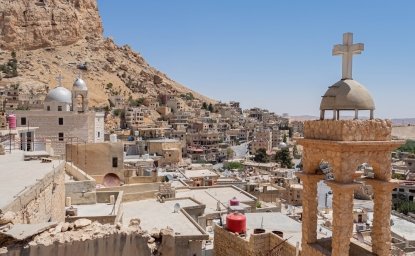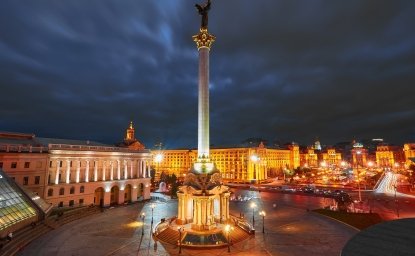By Christopher Alexander
What is the status of Islamists in Tunisia three years after the Arab uprisings began and two years after the Islamist Ennahda Party’s first electoral victory?
What led to the Ennahda Party’s decision in October to resign in favor of a caretaker government—a striking contrast to events in Egypt? And why did it opt for this course of action?
What were Ennahda’s successes and what were its failures during two years in power? What lessons might they take into the next elections?
Ennahda assumed control of more than just a new government. It assumed control of a new type of government for Tunisia, and it did so under very difficult circumstances. The economy struggled with problems that no government could fix quickly. Additionally, the party won 40 percent of the votes in an election that attracted barely half of the eligible voters. In other words, in a country desperate for quick solutions, Ennahda’s victory fell far short of a mandate. It won just enough to take on the hard work of maintaining a coalition government, and just enough to unleash personal rivalries and conflicts over its own identity, mission, and strategy.
Against this backdrop, and in comparison to other Arab Spring cases, one can say with all sincerity that things could have been worse. Ennahda’s leaders share in the credit that Tunisia’s political elite deserves for maintaining a negotiating process that has kept Tunisia from descending into chaos or sliding back into authoritarianism. Ennahda’s leaders have made significant compromises for the sake of crafting a new constitution that can attract broad support.
Nevertheless, many Tunisians accuse Ennahda of committing four critical errors:
1) Emphasizing divisive social issues in its rhetoric and in its positions during the constitutional negotiations. The portions of the new constitution dealing with national identity, the status of women, blasphemy, the nature of the state all became the subjects of protracted and heated debate. Some critics believe that Ennahda’s positions on these issues betrayed a more doctrinaire orientation than its electoral image suggested. Others believe that the party was trying to placate its more conservative base. Regardless of the motivation, these positions have divided Tunisians at a time when the government should be trying to build consensus and focusing on other issues.
2) Coddling Salafis. The softer version of this criticism accuses Ennahda of double-speak, of condemning acts of violence, but doing so too late and failing to take firm action against the perpetrators. The harder version accuses Ennahda leaders of actively encouraging extremists, either because Ennahda leaders actually support a more extreme agenda or because Salafi militancy strengthens their position with secular voters and parties. Regardless of the reason, many Tunisians hold Ennahda responsible for an environment that allowed Salafis to become more violent between 2011-2013.
3) Obstruction, foot-dragging, and partisan personnel decisions. Many Tunisians accuse Ennahda of delaying work on the new constitution and new elections while the party shapes a text that imposes its values and loads critical portions of the state apparatus with loyalists. According to this argument, the prolonged debates described above reflected more than philosophical disputes. They were stalling tactics while the party loaded the Interior Ministry and other offices with party loyalists rather than competent managers. In a similar vein, some critics see Ennahda’s preference for a parliamentary system of government, and the long time it took to incorporate a constitutional court into the text, as evidence that the party wants a constitution that gives substantial power to an elected legislature.
4) Neglecting the economy. While the party focused on ideological conflicts and enhancing its power, Ennahda neglected to address the social and economic grievances that fueled the rebellion against Ben Ali. A recent poll by the International Republican Institute (IRI) revealed that 79 percent of the population believes that the country is headed in the wrong direction. Employment, economic development, and security rank at the top of Tunisians’ concerns.
Christopher Alexander is the John and Ruth McGee director of the Dean Rusk International Studies Program at Davidson College. In addition to several articles on politics in North Africa, he is the author of Tunisia: Stability and Reform in the Modern Maghreb (2010).
Click here for Tunisia's Islamists II: The Salafis.
Click here for his chapter on Tunisia’s Islamists.
Photo credits: Rachid al Ghannouchi by Ennahda via Flickr, Hamadi Jebali and Moncef Marzouki by Magharebia via Flickr, Tunisia protest Img_0450 by Amine Ghrabi via Flickr




